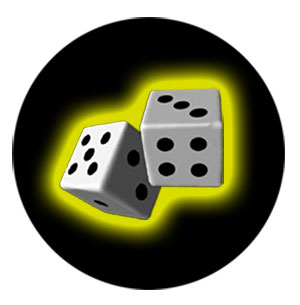
MENU

Chance
Harvard professor George Wald, in his article “The Origin of Life” in The Physics and Chemistry of Life, said, “Given so much time, the ‘impossible’ becomes possible, the possible probable, and the probable virtually certain. One has only to wait: time itself performs miracles.”1 With this kind of logic permeating the halls of science, it’s no wonder we’ve strayed so far from the search for truth and reality.
The mathematical formulas of probability theory estimate the likelihood that the smallest living thing could be formed by chance is one chance in 10 followed by 123 zeros. To get an idea how small a chance this is, a professor at MIT has estimated that all the protein molecules that have ever existed on Earth total only 10 followed by 52 zeros.2 This means that there is no chance that even the smallest living thing could be formed by chance. Sir Fred Hoyle, evolutionist, mathematician and professor of astronomy at Cambridge University, once said, “The chance that higher life forms might have emerged in this way [evolution] is comparable with the chance that a tornado sweeping through a junkyard might assemble a Boeing 747 from the materials therein.”3
If everything really did come about by chance processes, C.S. Lewis points out that even our ability to reason should be called into question:
If the solar system was brought about by an accidental collision, then the appearance of organic life on this planet was also an accident, and the whole evolution of Man was an accident too. If so, then all our thought processes are mere accidents—the accidental by-product of the movement of atoms . . . But if their thoughts [evolutionists] are merely accidental by-products, why should we believe them to be true? I see no reason for believing that one accident should be able to give a correct account of all the other accidents.4 (emphasis added)

“I see no reason for believing that one accident should be able to give a correct account of all the other accidents.”
C.S. Lewis
- George Wald as quoted in Morris, Henry M., ed. Scientific Creationism. (El Cajon, CA: Master Books, 1985), p. 66.
- Richards, pp. 67-70.
- Sir Fred Hoyle as quoted in Andrew Snelling, ed. The Revised Quote Book (Australia: Creation Science Foundation, 1990), p. 21.
- C.S. Lewis, God in the Dock (Grand Rapids, MI: Wm. B. Eerdmans Publishing Co., 1970) pp. 52, 53.
Design, graphics and artwork copyright © 2016 Tim Beasley • All rights reserved.